(Eduardo Guimarães is in the center. The young man at left is his lawyer)
By Miguel do Rosário, editor do Cafezinho
On the morning of Tuesday, 21st March, I woke up early, had a coffee and turned on my computer to catch up with the latest news in social media. It's how I usually start my days.
I used to read the papers, but they have become unbearably hysterical in the last three years, with headlines generally based on exaggerated suspicions, taking up about half of the front pages. That is, when they are not entirely false. So, I prefer to look through the filters of the internet, such as twitter, for example.
Suddenly, I came across a tweet from the Workers' Party (PT) Federal Deputy, Paulo Teixeira. He was protesting against the arrest of Eduardo Guimarães, one of the most prominent left-wing bloggers in Brazil.
First, I got in touch with some of my contacts to confirm this information. Then, I posted a text with a harsh headline: Car Wash abducts Eduardo Guimarães. I did this not only to draw attention to the fact, but also to denounce it.
Sergio Moro, the judge in charge of the Car Wash Investigations, ordered the Federal Police to "arrest" Eduardo Guimarães and "search and seize" items in his apartment.
A Condução coercitiva, as this type of arrest warrant is called in Portuguese, occurs when a judge issues an order for the police to enter someone's house and is forcibly taken to give evidence. This is an unnecessarily violent act. Particularly, if someone has never refused to give evidence before.
It is a measure considered illegal by most Brazilian legal experts and goes against the Brazilian Criminal Code, according to which a judge can only issue this type of arrest warrant if someone refuses to give evidence.
However, this was not the only illegal action in this whole affair. Federal Judge Moro also requested that Eduardo Guimarães telephone and electronic confidentiality be broken in order to discover his "sources". Again, this is illegal, according to the Brazilian Constitution.
But news travels quickly on the internet and criticism of Moro's actions came thick and fast. The Brazilian mainstream media usually keeps quiet when the subject is Moro's arbitrary behaviour. But social media is usually bubbling with accusations.
The public prosecutors involved in the Car Wash investigation reacted by saying that Eduardo Guimarães "was not a journalist" and that, in his blog, he engaged in "party-political propaganda".
This caused further indignation, as it revealed the authoritarianism of the State's officers as they took upon themselves to decide what is journalism and what is political propaganda. All the more outrageous, in a country where most of the mainstream media is accused of "political propaganda" and no one has ever attempted to arrest their journalists, issue "search and seizure" warrants, break their telephone and electronic confidentiality or force them to reveal their sources.
In very little time, some sites linked to the international press started to report on this case. BBC Brasil published a very harsh headline against the Car Wash investigation's actions, after interviewing a member of Reporters without Borders: "Blogger's arrest is a serious attack on freedom of the press", say Reporters without Borders".
El País was equally critical: "Blogger's case reignites debate on Moro's methods in Car Wash investigation".
The Uruguayan Edison Lanza, special rapporteur for Freedom of Expression at the InterAmercian Commission on Human Rights, a member organisation of the OAS (Organisation of American States), was also damning of the judge's decision, on twitter and other social media.
Lawyers close to the blogger reported that he was incommunicado in a Federal Police building. He was giving evidence without the presence of a lawyer.
Guimarães was accused of using his blog last year to 'leak' information about the Car Wash operation. He anticipated that the investigation was going to break the telephone and electronic confidentiality of dozens of people linked to former President Lula, as well as people working for, or with ties to, Instituto Lula.
The party-political nature of the Car Wash Operation has already been denounced many times across the world. Nevertheless, it is difficult for a Brazilian journalist to break the wall of fake news created by the mainstream media and explain to the international community the degree of arbitrariness and violent abuse in the methods used by Car Wash.
Hiding behind the fight against corruption, Car Wash has essentially become a partisan operation. It became one of the most relevant factors in the political conspiracy that led to President Dilma Rousseff's impeachment.
Several hours later, after becoming aware of the strong negative repercussion his decision of 'abducting' Eduardo Guimarães had, Sergio Moro had a change of mind and issued a decree stating that he would no longer use information he got through breach of secrecy in this case.
It was almost an apology. But, it was not addressed to the victim of legal abuse, Eduardo Guimarães. The judge mentioned the reaction of "respectable journalists" and cited one of the Brazilian associations of investigative journalism controlled by Rede Globo - Brazil's largest media corporation - which was the last organisation to criticise the judge's decision. Moro stated that, given the criticisms, he had reviewed his position and would now consider Eduardo Guimarães to be an actual journalist.
However, in the same decree he still railed against Guimarães by saying that "a journalist would never reveal his sources". This was an attempt at destroying Guimarães' integrity. It was also untrue.
After breaking his confidentiality, Moro already knew who Guimarães' sources were and the Federal Police used this knowledge to coerce, threaten and deceive him.
Moro's decree led to further reactions and the questioning of coercion instruments, that is, the physical, psychological and even moral violence used against Guimarães simply because he has been critical of an investigation.
Eduardo Guimarães, who was released some hours after giving evidence, managed to gather his thoughts and write about his experience.
As his friends, we have decided to translate his statement into English and Spanish and tell the world: do not believe the Brazilian press.
Brazil is experiencing a Coup d'État. What is being sold as an operation to "combat corruption" is a big farce. It brought to power a group of politicians infinitely more corrupt than the government it deposed. The current government has, in only a few months, repealed social legislation which had been in force in Brazil since the 1930s.
In the name of fighting corruption, reactionary sectors of the Brazilian judiciary have suspended or annulled several individual guarantees. We will continue to denounce these cases in the next few weeks. For now, we leave you with Eduardo Guimarães' own statement on the abusive breach of his rights.
**
MY ARREST
By Eduardo Guimaraes, on “blog da Cidadania”
(The original article, in Portuguese, was edited by Cafezinho)
On Thursday 23rd March, the Brazilian Federal Judge, Sergio Moro, retracted his decision (to break my confidentiality. This was possible, according to him, because I was ‘not a professional’) and recognised me as a journalist. As a result, he decreed that proofs obtained by breaching the confidentiality of my sources be excluded from the (Car Wash) investigations. Nevertheless, he still makes claims about the circumstances of my testimony that are not true and must be clarified.
At 6am on 21st March 2017 we heard loud noises. I thought it must have been a neighbour starting refurbishing works too early in the morning and I went back to sleep. Seconds later, I heard my wife’s distraught voice saying that there were people at the door wanting to arrest me.
My 18-year-old daughter, Victoria, who has cerebral palsy, was sleeping in the room next door. She was frightened, became agitated and started moaning, as she normally does, when she is nervous.
I got up startled and ran into the sitting room where I found my wife by the door. As I opened it, I saw four federal policemen and the building's janitor next to them with a frightened look on his face.
My wife, who was still in her night clothes, was not allowed to get dressed. Meanwhile, Victoria was looking at all this with eyes wide open.
The Policemen stated they had an arrest warrant, allowing them to search through the apartment and seize whatever objects they deemed important. They forced the janitor to enter our bedroom, whereupon they started opening drawers, cupboards and going through everything.
I was forced to give the password of my notebook, which they changed to give them full access to it whenever they wanted. They denied my request to copy my personal data. They also asked me to unlock my mobile phone.
Having found nothing else, they declared I was going to be arrested. I tried to contact my solicitor, Fernando Hideo, but could not reach him. It was just after 6 am. My wife asked them to wait until I could speak to my lawyer. They denied me this request and I was forced to get dressed and accompany them to the Federal Police headquarters in São Paulo.
We were given a few minutes of privacy, as a family, in Victoria's room. My wife was crying, my daughter, who cannot talk, made her usual sounds. I wondered whether I would see them again.
I tried to appear calm. I thought I had been arrested because Sergio Moro was processing me on account of some tweets which, he alleged, threatened his life.
However, on the way to the station, it was explained to me that I was being detained because on 26th of February last year I published information about former President Lula's breach of privacy.
Once in the cross-examination room, I could not contact anyone, as I no longer had a telephone. The process began without the presence of a lawyer.
The Chief Police Officer said he knew who my source was, showing me his name and telling me that his source of information (the source of my source) was a "tax officer". He showed me a picture of the "tax officer" who leaked the information and asked if I knew her. He wanted to know if the three of us had acted in collusion.
I was surprised, because this source, the so-called journalist that had got in touch with me, said he had obtained information from the media. He also said that all the São Paulo press had access to the same information. That's when I found out that information had been illegally disclosed by a tax officer.
The Chief Police Officer made it very clear that I was accused of being an "accomplice" to the people who passed me the information. I said this was not true and asked myself out loud why the journalist would have provided me with false information. The Officer reacted to my rhetorical question by saying it was probably to instigate me into publishing the information and not have to worry as to whether it was a crime. I repeat: the police officer said that my source had deceived me.
Faced with the possibility of being arrested if I could not prove I did not know the Curitiba journalist, I told the cross-examiner that he had this evidence, because he had told me that "he knew everything".
It is here that Judge Moro is wrong about the events, though I have no idea what information he received about my cross-examination. He said that I was not coerced, but I was. Furthermore, I could not keep my sources secret (Sergio Moro also stated that Guimarães had disclosed his own sources) because the police already knew more about them than me. Even before I was cross-examined, they had told me that they knew my sources.
Let's look at the facts again.
I was heard without the presence of a qualified lawyer to advise me during the cross-examination. All this took place after the traumatic experience I and my family were put through in the early hours of the morning that day.
I advised the Chief Police Officer that the lawyer who arrived half-way through my testimony was not an expert in criminal law and that she was present so I would not give my statement alone. She did not interfere in the interrogation.
She came in cold, as they say. In other words, despite being an excellent lawyer in her specialist area, she was neither conversant with my case nor had worked with criminal law.
I was told that if I could not prove I did not have relations with the people in Curitiba, I would be considered 'a member of a criminal gang'.
My own lawyer, Fernando Hideo Lacerda, arrived well after my cross-examination was over. When I was about to sign the statement, he discovered several points that had been unduly inserted and asked for their correction. In other words, had my lawyer not arrived in time, my civil rights would have been breached even further.
In relation to having warned the Instituto Lula about Lula’s imminent arrest, Federal Judge Moro gave the impression that the Car Wash investigation had discovered new information. It had not.
Here are the facts.
On 23rd February 2016, I received information from the journalist in Curitiba. It included a list with over 40 names of people and companies with possible ties to former President Lula. I needed to know if this was a trap - I did not want to publish lies about the former President.
So, I contacted the Institute's press officer to find out whether President Lula knew the people and companies involved. I did not mention the arrest warrant to which he would later be submitted. The former president's press officer asked for time to check the information before I published it. I agreed and stressed that I could not wait long.
In short: If I had not published the article on 26th February, when I revealed I got in touch with Instituto Lula about the list of 40 names, Sergio Moro and members of the Car Wash investigation would never have known that former President Lula had been contacted at all.
It is important to note that Instituto Lula was only informed of the names whose secrecy had already been breached and of nothing else. The only reason I had to approach the Institute was to discover whether those persons or companies did indeed have ties to the former president, because I did not want to publish false information.
Judge Moro seems to be very keen on denying his own arbitrariness, but does not stop committing them. His decree shows his clear intention to accuse me of revealing information. In other words, he seemed to want to attack my moral integrity. But what actually happened was that he irreversibly breached the confidentiality of my sources when he ordered that information on my telephone bill be disclosed.
Judge Moro forced the mobile company to disclose my telephone bill in order to identify the source that had passed information published in my blog. However, Moro’s note to the press states that I had "immediately” revealed my source once the police asked me about them without any form of coercion.
This was clearly not the case. I was illegally coerced during the cross-investigation. This is obvious from the fact Judge Moro himself recognised the illegality of the measures used to obtain my sources of information. The authorities already knew about the source, obtained by means which Moro himself now believes to be illegal.
Furthermore, Judge Moro is also my adversary. He is processing me for putting a complaint against him at the National Council of Justice. He is also filing a lawsuit against me because of something I published that he considers to be a threat issued against his person.
In theory, he can no longer act as a judge in matters relating to me, because he is party in processes which involve both of us. I cannot be judged by an adversary. This is utterly wrong, something that only happens under dictatorships.
How would you like to be judged by someone who dislikes you? Is this justice?
I would also like to say that, up to now, no one has ever dared accuse me of passing any information to President Lula in exchange for personal benefit. I have not been accused of being corrupt, attempting to corrupt anyone, nor of having done anything from which I stand to gain. My conscience is clear.
I think it honourable to fight against all arbitrariness. I am fighting for Brazilian democracy, threatened by Kafkaesque processes such as this one - that turns me into a victim simply for doing journalism, even if Judge Moro does not accept that I am a journalist.
Finally, the most ironic part of this whole affair is that the people who accuse me of leaking information disclosed the case against me to a site, linked to the PSDB party and Temer's government, committed to attacking the Workers' Party, Lula and the left.
The world needs to know what is happening in Brazil and, as long as I live and have a voice, I will continue to denounce the dictatorship that is afflicting our Country, so that my three granddaughters - and other future grandchildren - do not have to live in a dictatorship.
(Translations by Mariana T. Noviello, who is also columnist of Cafezinho)

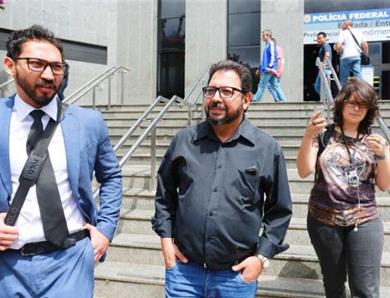
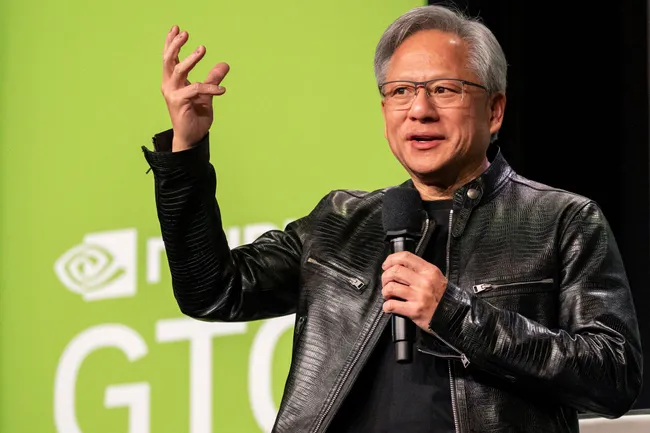
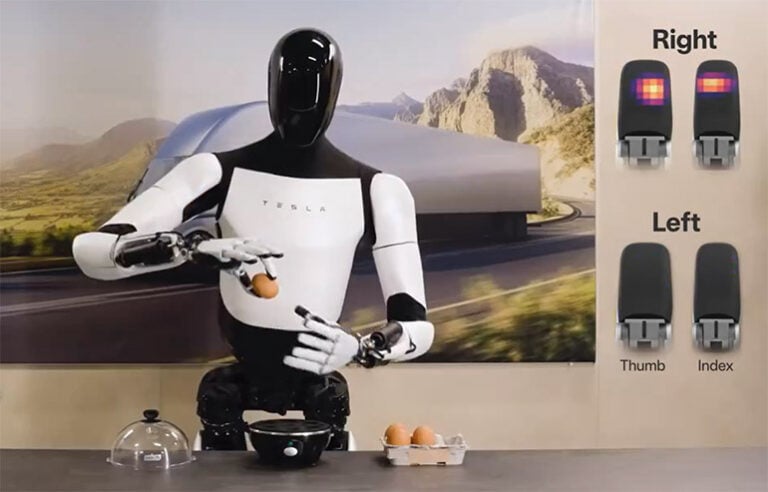
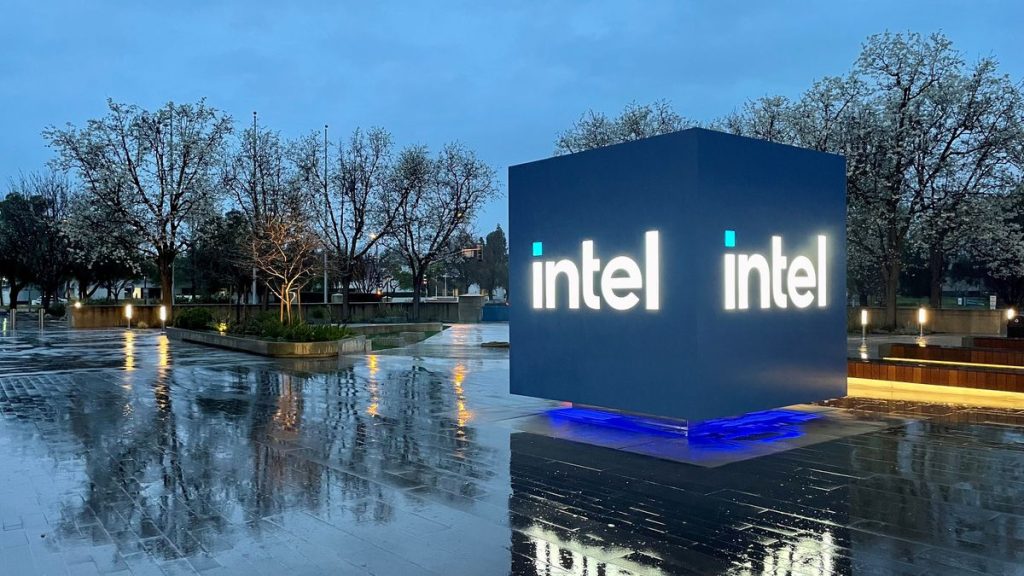
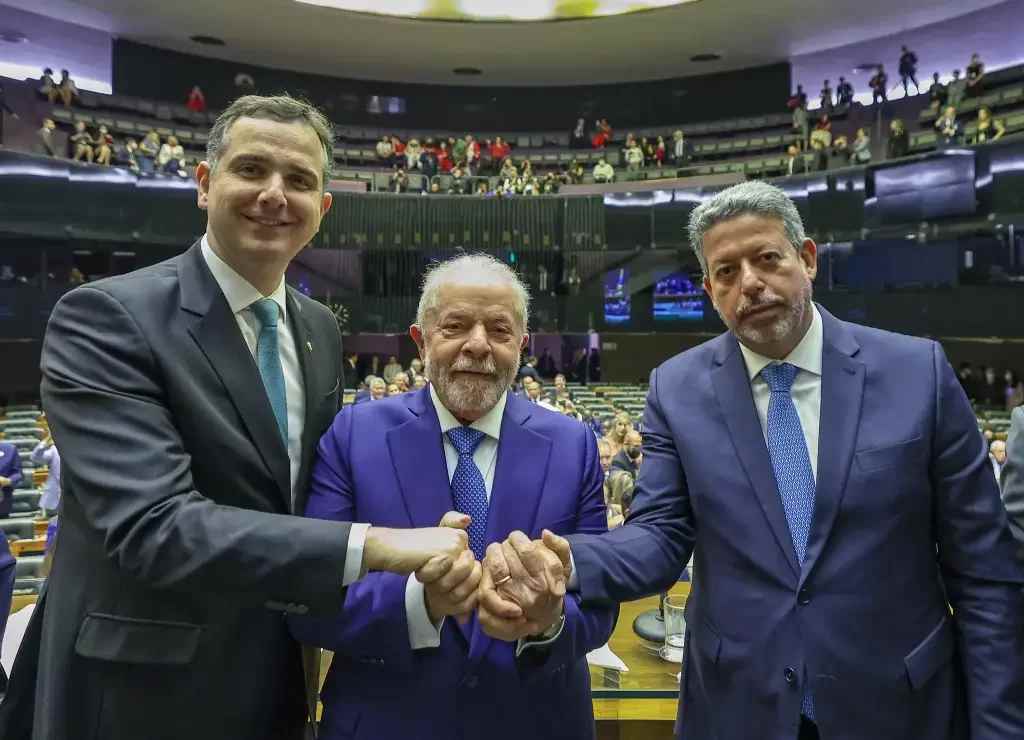
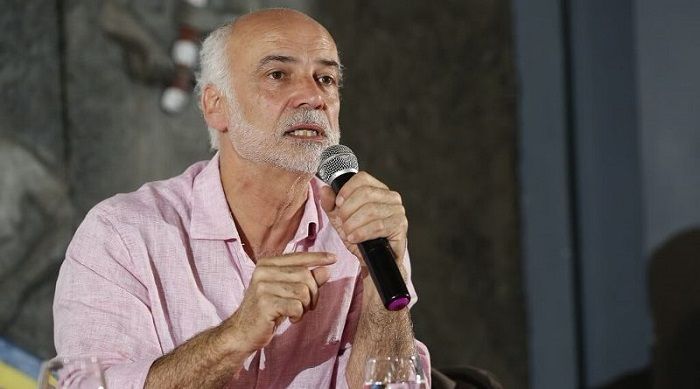
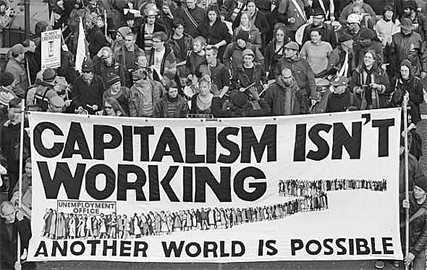

Nenhum comentário ainda, seja o primeiro!